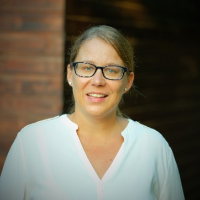Profile
Dr Ines Veile is currently group manager for method development in the department Materials Characterization at Fraunhofer IZFP. She has a PhD in geophysics from Karlsruhe Institute of Technology and joined Fraunhofer IZFP in May 2015 as a reseach assistant for ultrasonic materials characterization.
Abstract
Characterization of residual stresses by means of ultrasonics
The restructuring of energy production worldwide towards increasing use of solar and wind energy is directly coupled to increasing load dynamics of fossil and nuclear power plants. This leads to a rising amount of stress-induced fatigue. The temperature-based monitoring systems applied in nuclear facilities today (such as Framatome’s FAMOSi) use a load-dependent, quasi-continuously measurable physical parameter (e.g. outer wall temperature) in order to estimate fatigue-relevant time series of multiaxial loads. In certain load scenarios, e.g. in case of high-frequency temperature transients occurring at the inner wall, these methods reach physical limits of their applicability. The overall goal of the project EMUS-4-STRESS is the development of a method for determining the load-induced stress gradient originating from the inner wall of pipe components in case of fast load transients, by means of measurements at the outer wall, and finally fusing the developed approach with the existing FAMOSi technique. The high-frequency stress transients are determined using ultrasonic time-of-flight measurements. In this context, stress gradients over the cross-section of the pipe wall are taken into account. An ultrasonic time-of-flight-based approach has been developed and successfully demonstrated on a pressurized austenitic pipe of 1.4550 material (X6CrNiNb18-10). ElectroMagnetic Acoustic Transducers (EMATs) were used due to their advantageous properties for a possible application in the plant. Having investigated different wave types with respect to their suitability to determine relevant stress changes, the pipe was equipped with EMATs exciting horizontally polarized shear waves (propagation of a shear wave in the axial direction, polarization towards the circumferential direction of the pipe).
- Ines Veile
Fraunhofer Institute for Nondestructive Testing IZFP
DE - https://www.izfp.fraunhofer.de
Email

